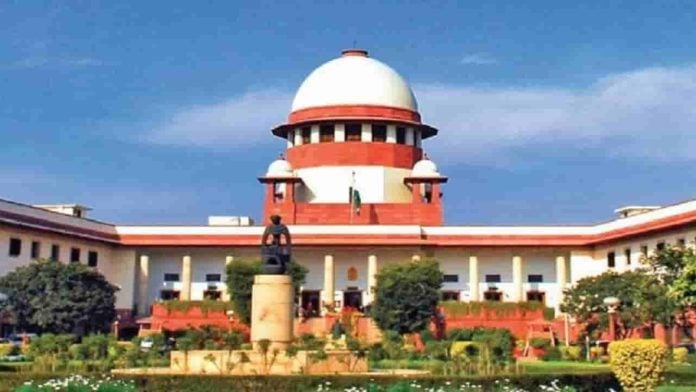The Supreme Court was apprised by the Central government that the ban by the Union Home Ministry on the Students Islamic Movement of India (SIMI) should continue as the organizations constitution is in direct conflict with sovereign setup of democratic India’s democratic,
A counter-affidavit to that effect was filed before the apex court on a petition challenging the ban.
The petition is listed before and will be heard by Justice Sanjay Kishan Kaul
The petition was filed by Humam Ahmad Siddiqui, who was earlier the member of the organization, challenging the 2019 notification which extended the ban imposed on the organization under the Unlawful Activities (Prevention) Act (UAPA).
The Centre filed its counter questioning the locus standi of the petitioner as he was neither an office bearer nor a member of the organization. He added that it was only the office bearers or members only can challenge such a notification under Section 4(2) and 4(3) of the Act.
The constitution of SIMI intends to disrupt the sovereignty and integrity of the country, along with causing disaffection against it.
It also added that it qualifies as offences under Sections 153A (promoting enmity between different groups on grounds of religion, race etc) and 153B (imputations, assertions prejudicial to national integration) of the Indian Penal Code (IPC).
The oath of allegiance was demonstrated before the Court for an Ansar (basic member) of SIMI:
The oath says that I promise that I would work for liberation of humanity and establishment of Islamic system in my country. I will spend my time, resources and capacities in this cause and won’t spare my life if need be.
Union argued that the petition was not maintainable.Stating ban to be justified, the counter said that SIMI aims to mobilize the youth for propagation of Islam and to support ‘Jehaad’, and also emphasizes on the formation of ‘Shariat’ based Islamic rule through ‘Islami Inqalab’.
It also added that the organization does not believe in nation-state or in the Indian Constitution including its secular nature. It further regards idol worship as a sin, and propagates its ‘duty’ to end such practices.
The affidavit said that SIMI has contacts in Pakistan, Afghanistan, Saudi Arabia, Bangladesh and Nepal, and as it is a organisation of the youth, it makes youth fundamentalist.
It said that terrorist organizations like Hizb-ul-Mujahideen and Lashkar-e-Taiba have successfully managed to penetrate into the SIMI cadres to achieve their anti-national goals.
In the context of India,SIMI has been active in several Indian states and is known to have launched a nation-wide campaign to mobilize the support of Muslims for creating a caliphate.
The Centre said that even after being banned since September 27, 2001, SIMI continues to operate undercover and its activists indulging in activities which are disruptive in character and capable of threatening the sovereignty and territorial integrity of India.


